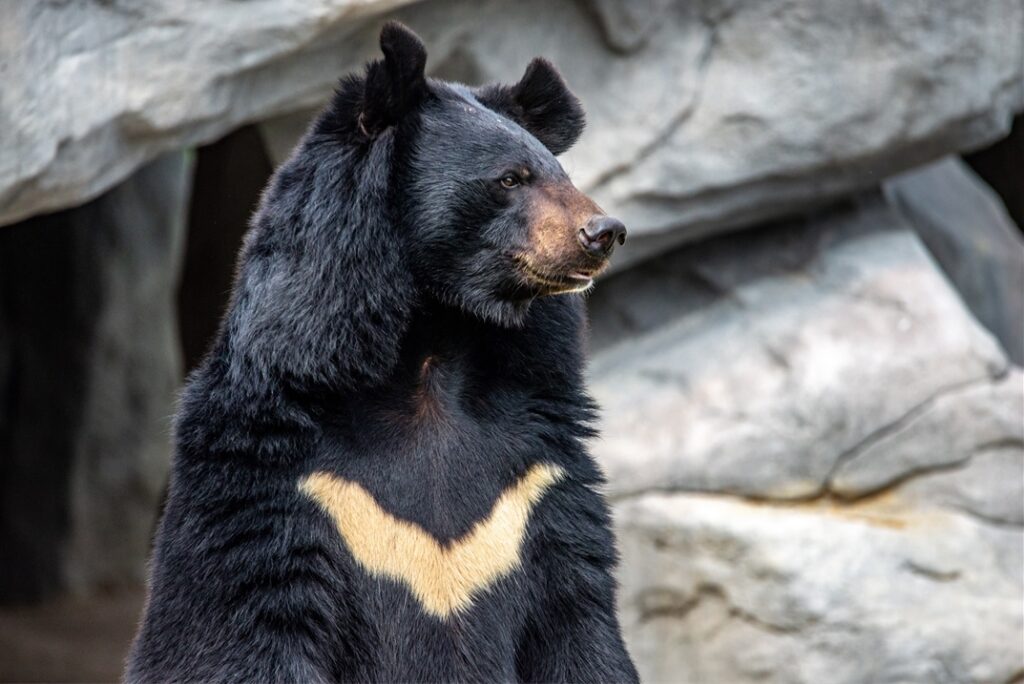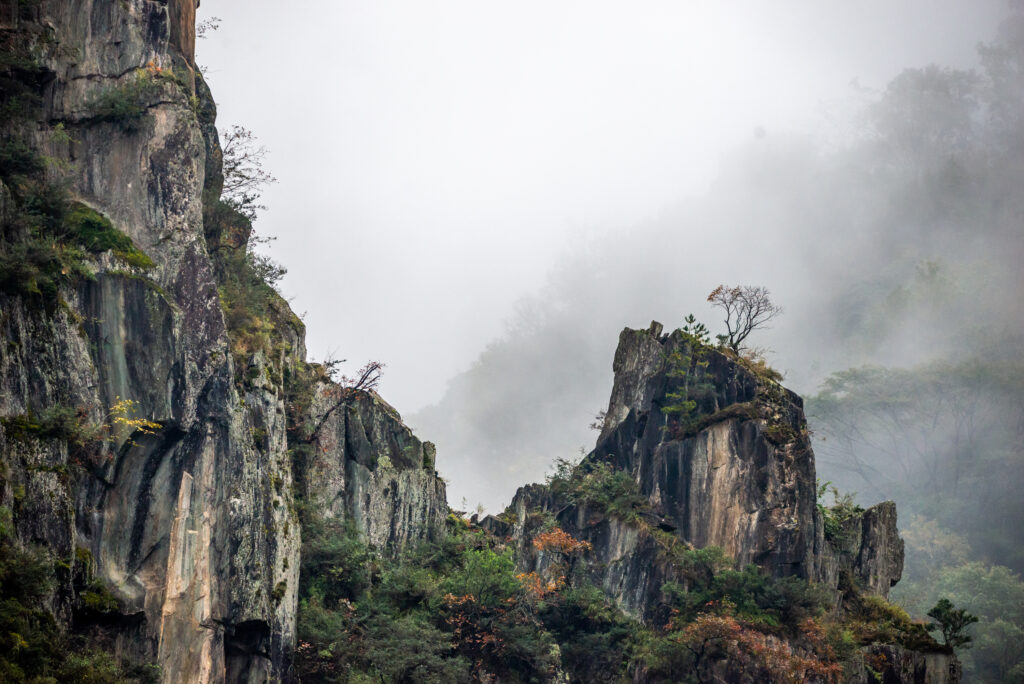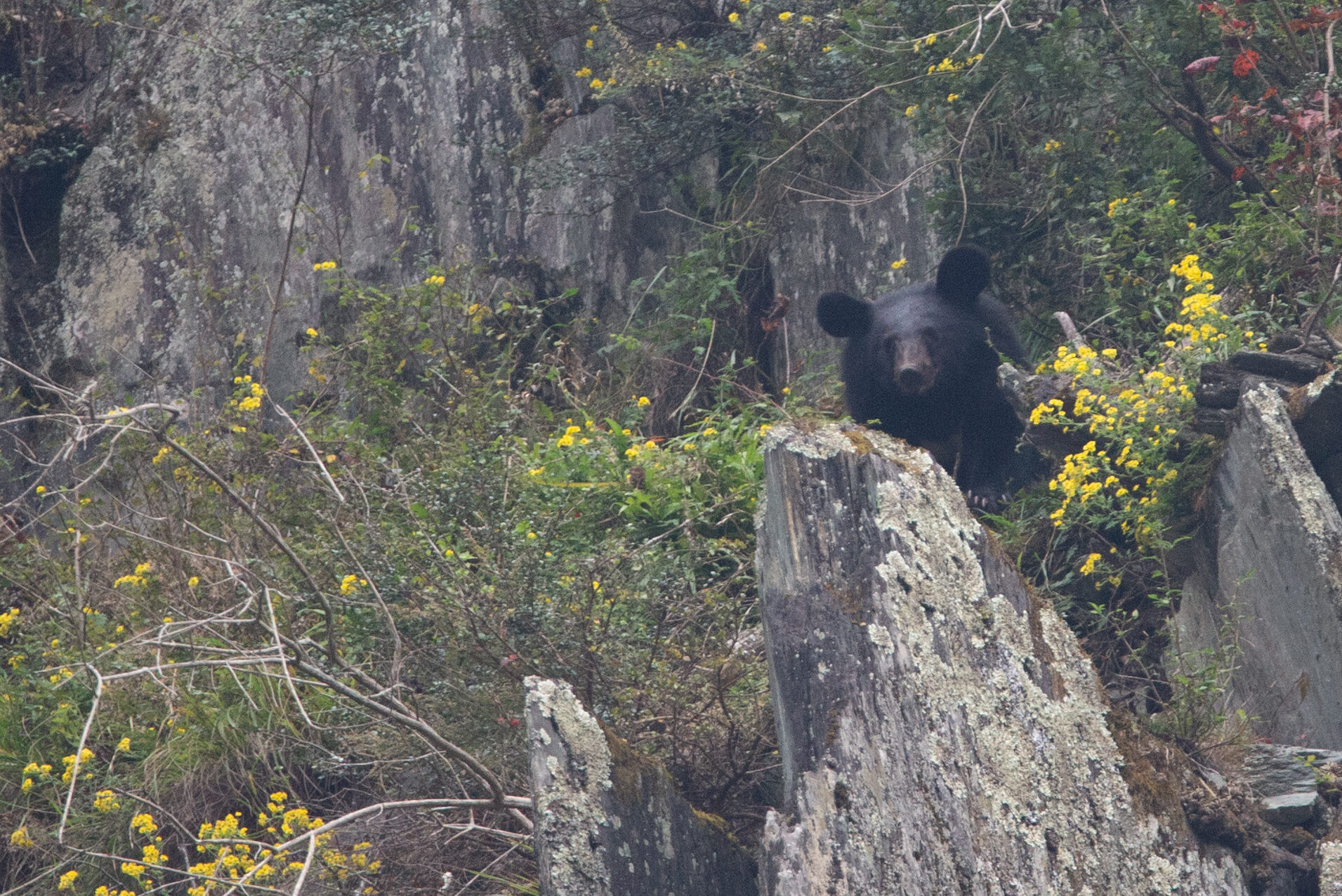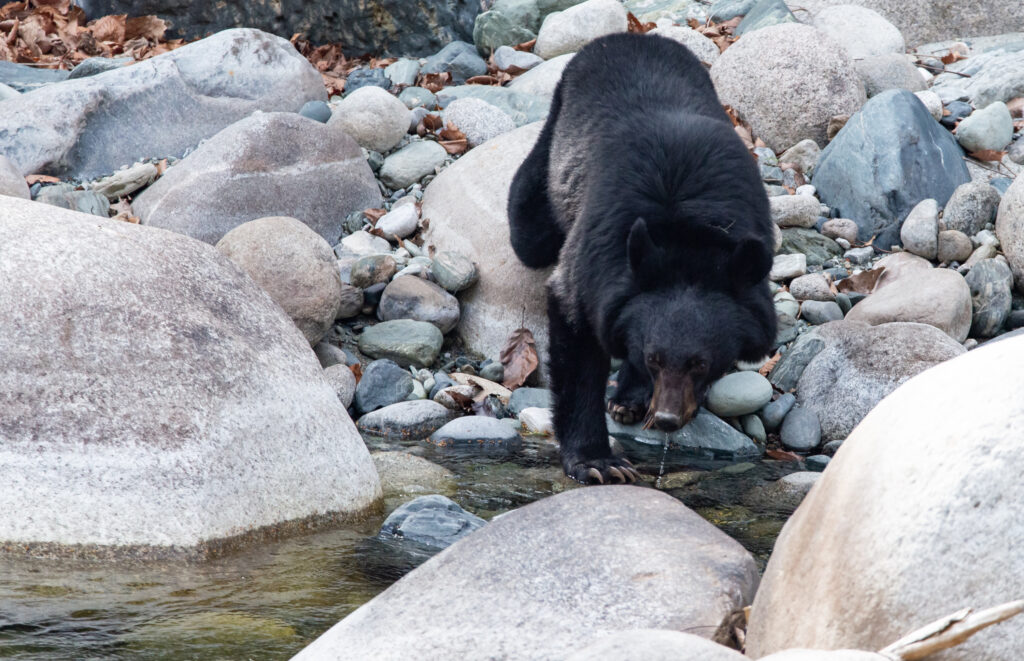One of the highlights of my expedition leading career and of my personal journey to observe and enjoy wildlife has been my opportunity to travel through remote regions of Sichuan Province, China. During my Wild Side of China expeditions that I lead for Natural Habitat Adventures I have had encounters with beautiful, rare, and endangered wild animals that are widely unknown to the rest of the world. Golden Takin, Chinese Serow, Tufted Deer, Reeve’s Muntjac, Yellow-Throated Marten, to name a few. I have been lucky to encounter the elusive Moon Bear, also know as the Asiatic Black Bear, on a couple of occasions. These bears are extremely shy due to centuries of persecution by humans and seeing one in the wild in China is a pinnacle of wildlife viewing.

The Moon Bear is rare in China. It’s habitat, much like the Giant Panda, has been encroached upon by human development. Farming, logging, highways, and cities have pushed the Moon Bear into the more remote and challenging mountain terrain. There is a difficult human-bear relationship in regard to the Moon Bear as well. They are not well tolerated close to human settlements due to misinformation or fear and are often poached or killed. There is a high demand for their body parts in the traditional medicine market; more specifically for their gall-bladders. Ultimately all body parts of the Moon Bear are valued on the market. The pressure from the traditional medicine market has eased in recent years due to better education and appreciation of the bears in China and abroad, but it is still a threat nonetheless. The moon bears find their solace far up remote valleys and in regions that are sparsely populated. There are higher concentrations of moon bears in some of the Giant Panda Nature Reserves due to the world-class level of protection all animals receive within those reserve boundaries. With the ever present pressure from humans over centuries, each generation of bears has become more and more wary of a human presence. This has made them extremely difficult to view in the wild throughout much of their habitat.

The Tangjiahe Nature Reserve in Sichuan Province, China was founded in the 1970’s and was one of the original research sites for studying the Giant Panda. At the time of the reserves creation the region had several villages in the lower elevations and the higher valleys were being actively logged for their old growth trees. Once designated as a reserve, the logging stopped and the villages were relocated to outside of the reserve boundaries. Estimates of Giant Panda populations in China at the time were between 900-1000 and these emergency measures to protect and preserve whatever habitat remained was absolutely critical to the Giant Panda’s future survival. The following 40+ years of successful habitat and reserve management created the perfect habitat and environment for Giant Pandas. Giant Pandas acted as an Umbrella Species for Moon Bears within this reserve. As a result, Moon Bears were able to thrive unobstructed by human encroachment, and in recent years begin to tolerate well behaved human presence.

I’ve been running expeditions in China since 2017, and it wasn’t until the fall of 2018 and my seventh expedition that I saw my first moon bear. This sighting was a direct result of the strong management and protection in place within this reserve. I stood on the side of a narrow valley road, deep in the Minshan Mountains and watched this beautiful and agile bear maneuver over seemingly impossible mountainside terrain with ease. For over half an hour, I watched in awe with a greater appreciation for this nature reserve and the people who protected this slice of wilderness.

